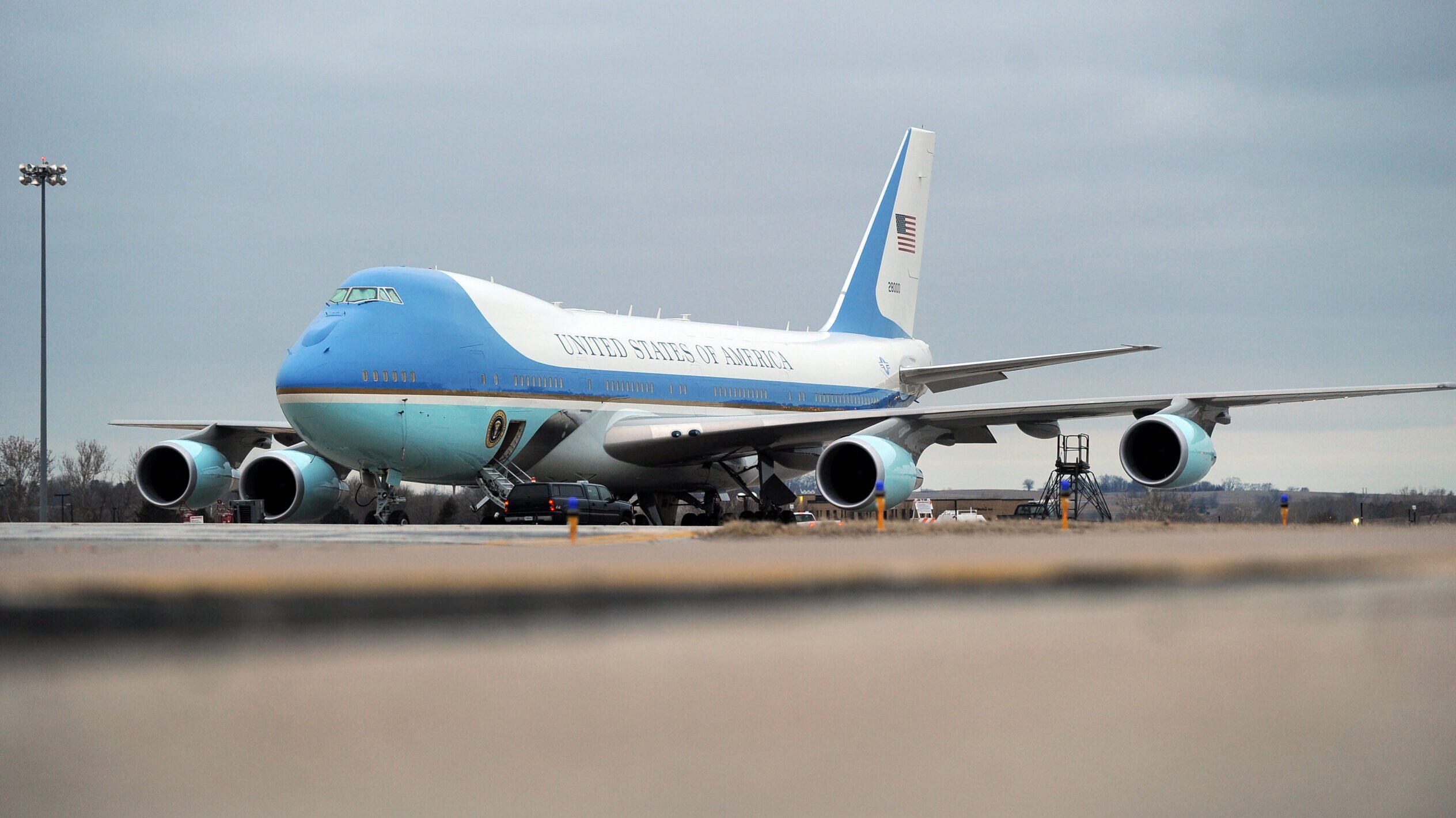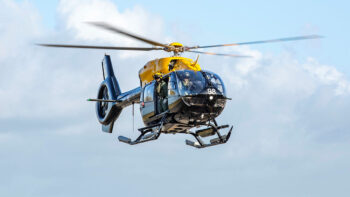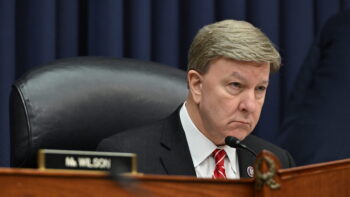
A VC-25A Air Force One aircraft sits on a ramp at Offutt Air Force Base, Nebraska during a brief stop Jan. 22. The aircraft is one of two modified Boeing 747 Airliners that serve as a transport aircraft for the President of the United States. (US Air Force/Josh Plueger)
FARNBOROUGH AIRSHOW: The Pentagon has officially approved a new schedule for the next-generation Air Force One planes, with the government now projecting that Boeing will deliver the first new VC-25B aircraft by September 2026 at earliest — a full two years behind its originally scheduled date.
The rebaselined schedule, which was approved by Pentagon acquisition czar Bill LaPlante on June 28, also includes a later September 2027 “threshold” date for the first delivery, the Air Force said in a statement. Meanwhile, the second and final aircraft could be delivered anywhere between February 2027 and February 2028.
So far, Boeing has lost $1.1 billion dollars on its original $3.9 billion fixed-price development contract for the VC-25B due to a “combination of factors including impacts from the COVID-19 pandemic, interiors supplier transition, manpower limitations, wiring design timelines, and projected test execution rates.” Most significantly, the program began to veer off schedule when its initial interior supplier, GDC Technics, declared bankruptcy in 2021, after which a legal dispute between Boeing and GDC ensued.
In a roundtable with reporters on Sunday, Boeing Defense CEO Ted Colbert said that the company is focused on keeping the program on track, not recouping lost money. “We can keep looking backwards, you know, forever,” he said. “The goal right now is to deliver two great airplanes to the federal government, to our customer, to the Air Force.”
While Colbert declined to go into specifics, he said Boeing has applied the lessons learned in the early stages in the program. “We made changes to the program, we made changes to the way we work on the program, to the attributes of the program that are most important to have been successful,” he said. “We are going to learn the lessons from supply chain perspective, from a talent perspective, from a facilities perspective.”
RELATED: New Boeing Defense CEO signals different approach in future fixed-price contracts
According to the Air Force, Boeing has not requested an increase to the VC-25B contract price. However, the service’s acquisition chief Andrew Hunter has previously said that there have been instances where the Air Force and Boeing do not agree on the scope of the contract, which have led to a back-and-forth between the company and the service about whether certain design elements constitute an engineering change that would be billed to the Air Force.
“You get this dynamic where they become very focused on, ‘We need to finish, we’re going to finish what’s in the contract, anything that appears to us to be in any way, shape, or form not 100% required explicitly in the contract is an extra bill,’” Hunter said in June.
Breaking Defense first reported in March that Boeing projected a 17-month delay to the VC-25B program. In May, Hunter told lawmakers that the Air Force’s estimate was significantly longer — anywhere from 24 to 36 months.
Former President Donald Trump and then-Boeing CEO Dennis Muilenberg personally brokered the fixed-price contract for VC-25B’s engineering, manufacturing and development phase in 2018 after Trump threated to cancel the program if it exceeded $4 billion. In order to cut costs, the parties agreed to use two Boeing 747 planes that were previously built for a defunct Russian airline, but never owned or operated by that company.
Since then, Boeing CEO Dave Calhoun has been publicly critical of the deal, calling it “a very unique set of risks that Boeing probably shouldn’t have taken.”
Although the Defense Department’s internal schedule baseline for the program has now been finalized, the Air Force is currently involved in discussions with Boeing “to formally extend the contractual delivery dates,” which occurs as a separate process, the Air Force stated.






















